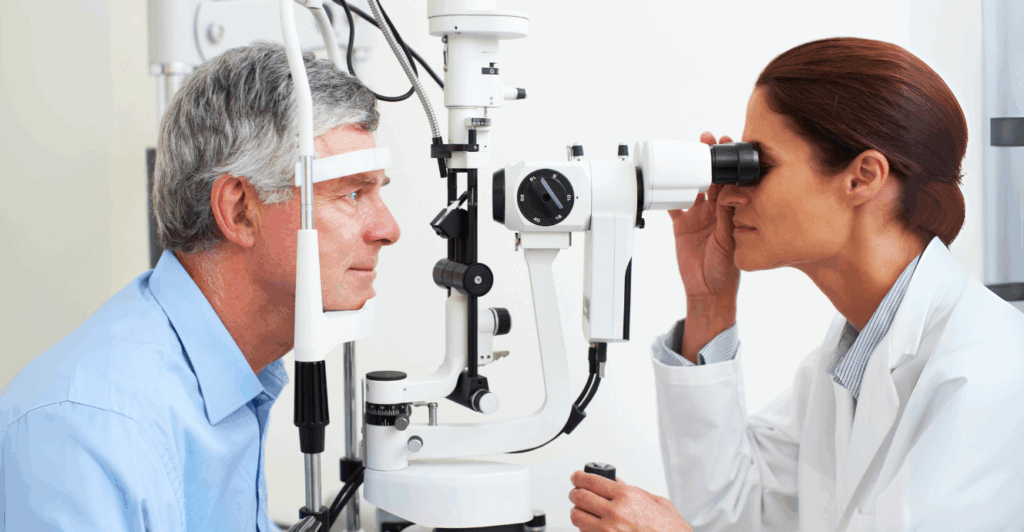Protecting Your Vision as You Age: 21 Changes to Watch For
Learn how to protect your eyesight as you age. Discover 21 common vision changes and expert tips to preserve your eye health at every stage of life.

Did you know 2 out of 3 Americans falsely believe vision loss is just part of getting older? While aging does affect your eyes, losing your sight is not something you have to accept. Most age-related eye conditions can be managed — or even prevented — with the right care. Here’s a list of 21 common vision changes that come with age and what you can do to protect your eyesight at every stage of life.
Common Vision Changes as You Age
1. Trouble Reading Small Print
- This is often due to presbyopia, a common condition after age 40 where near vision becomes blurry.
- Solutions: Reading glasses, multifocal contact lenses, corrective surgery, or eye drops.
2. Difficulty Seeing at Night
- Aging can weaken the rod cells in your eyes, making it harder to adjust in low light.
- Tip: Limit night driving and use brighter lighting at home.
3. Dry, Irritated Eyes
- As we age, tear production decreases, this can cause dry eyes.
- Treatments: Artificial tears, prescription drops, or in-office therapies.
4. Loss of Contrast
- You may struggle to see pale items on pale backgrounds, like milk in a white mug.
- Try using high-contrast colors in your home to help things stand out.
5. Red or Swollen Eyelids
- This may be blepharitis, a common age-related eyelid inflammation.
- Look for crusty eyelashes or sore lids, and ask your doctor about treatment options.
6. Seeing Floaters
- Small spots or threads in your vision can be normal as the eye’s vitreous changes with age.
- If there is a sudden incriese it is important to call your ophthalmologist.
7. Flashes of Light
- These may happen when the vitreous pulls on the retina.
- Frequent or sudden flashes should be evaluated immediately.
8. Glare Sensitivity
- Bright lights may feel more intense or uncomfortable.
- Use sunglasses, add soft indoor lighting, and apply matte screen protectors on digital devices.

Serious Eye Conditions Linked to Aging
9. Cataracts
- Cloudy lenses are common in older adults — more than half of Americans over 75 have them.
- Cataract surgery is safe, quick, and can restore clear vision.
10. Age-Related Macular Degeneration (AMD)
- This disease affects central vision and often develops after 50.
- Early detection is key. Regular eye exams can slow vision loss.
11. Glaucoma
- Often called the “silent thief of sight,” glaucoma can lead to permanent blindness without early symptoms.
- Only a comprehensive eye exam can detect it early.
12. Diabetic Eye Disease
- Diabetic retinopathy is a major cause of vision loss in adults with diabetes.
- Control your blood sugar and schedule regular retina exams.
13. Eye Cancer (Ocular Melanoma)
- Rare but more common with age, this cancer is best caught early during routine eye exams.
14. Falls Caused by Vision Changes
- Reduced vision affects balance and increases fall risk — especially at home.
- Secure rugs, install railings, and use brighter lighting.
15. Poor Sleep Linked to Eye Health
- Older eyes absorb less blue light, disrupting melatonin and sleep cycles.
- Glaucoma and diabetic eye disease may also worsen sleep problems.
How to Keep Your Eyes Healthy Over Time
16. Eye Exams Detect More Than Just Vision Problems
Your ophthalmologist can spot signs of:
- High blood pressure
- Diabetes
- High cholesterol
- Vitamin deficiencies
- Even early signs of dementia
17. Know Your Family’s Eye History
- Genetics play a big role in eye diseases like glaucoma and AMD.
- Share your family history with your eye doctor.
18. Healthy Lifestyle = Healthy Vision
- Exercise, a balanced diet, and avoiding smoking help prevent diseases that affect your eyes.
19. Use Low Vision Aids if Needed
- If you do experience vision loss, tools like magnifiers, screen readers, or large-text devices can help maintain independence.
20. Caregiver Tips for Dementia Patients
- If you’re helping a loved one with Alzheimer’s or dementia, prepare for their eye exams with familiar routines and calm environments.
21. Schedule Regular Eye Exams
- Age 40+: Get a baseline eye exam
- Over 65: See an ophthalmologist every 1–2 years

Aging Eyes Deserve a Clear Future
Growing older may bring changes to your eyes — but losing your vision doesn’t have to be one of them. Every stage of life brings new challenges, but also new opportunities to protect what matters most: your ability to see the people, places, and moments you love.
At CODET Vision Institute, we believe your golden years should be seen in full color and clarity. With the right care, routine checkups, and the latest in ophthalmic technology, you can stay ahead of eye disease and continue living life on your terms.